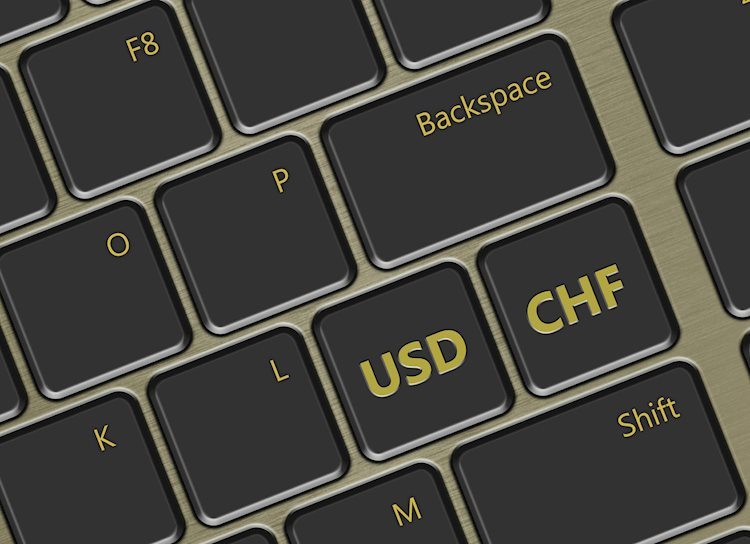- USD/CHF trades in positive territory for the third consecutive day near 0.8810 in Tuesday’s early Asian session.
- The US CPI inflation data will be the highlight on Wednesday.
- The SNB made no commitment to keep cutting interest rates.
The USD/CHF pair attracts some buyers to around 0.8810 during the early European session on Tuesday. The stronger US Dollar (USD) broadly provides some support to the pair. The Federal Reserve’s (Fed) Christopher Waller, Thomas Barkin, Neel Kashkari and Patrick Harker are set to speak later in the day. The US Consumer Price Index (CPI), and Producer Price Index (PPI) will be in the spotlight on Wednesday.
Trump’s proposed policies including tax cuts, trade tariffs and deficit spending could trigger a fresh wave of inflation and could compel the US Fed to slow the pace of rate reductions. This, in turn, might underpin the Greenback against the Swiss Franc (CHF).
The US Dollar Index (DXY), which tracks the performance of the USD against six peers, climbed to fresh four-month highs near 105.70. Traders will shift the focus to the US October CPI inflation data on Wednesday, which might offer some hints about the Fed’s future rate path.
On the Swiss front, the Swiss National Bank (SNB) Vice Chairman Antoine Martin said on Monday that the central bank is not locked into more interest rate cuts in December. “It’s not useful for central banks to lock themselves into forward-looking communications, since between now and the next decision, there may be changes in conditions that render current communications invalid,” noted Martin. The markets expect the SNB to cut at least 25 basis points (bps) from the current 1% level at its next meeting on December 12.
Swiss Franc FAQs
The Swiss Franc (CHF) is Switzerland’s official currency. It is among the top ten most traded currencies globally, reaching volumes that well exceed the size of the Swiss economy. Its value is determined by the broad market sentiment, the country’s economic health or action taken by the Swiss National Bank (SNB), among other factors. Between 2011 and 2015, the Swiss Franc was pegged to the Euro (EUR). The peg was abruptly removed, resulting in a more than 20% increase in the Franc’s value, causing a turmoil in markets. Even though the peg isn’t in force anymore, CHF fortunes tend to be highly correlated with the Euro ones due to the high dependency of the Swiss economy on the neighboring Eurozone.
The Swiss Franc (CHF) is considered a safe-haven asset, or a currency that investors tend to buy in times of market stress. This is due to the perceived status of Switzerland in the world: a stable economy, a strong export sector, big central bank reserves or a longstanding political stance towards neutrality in global conflicts make the country’s currency a good choice for investors fleeing from risks. Turbulent times are likely to strengthen CHF value against other currencies that are seen as more risky to invest in.
The Swiss National Bank (SNB) meets four times a year – once every quarter, less than other major central banks – to decide on monetary policy. The bank aims for an annual inflation rate of less than 2%. When inflation is above target or forecasted to be above target in the foreseeable future, the bank will attempt to tame price growth by raising its policy rate. Higher interest rates are generally positive for the Swiss Franc (CHF) as they lead to higher yields, making the country a more attractive place for investors. On the contrary, lower interest rates tend to weaken CHF.
Macroeconomic data releases in Switzerland are key to assessing the state of the economy and can impact the Swiss Franc’s (CHF) valuation. The Swiss economy is broadly stable, but any sudden change in economic growth, inflation, current account or the central bank’s currency reserves have the potential to trigger moves in CHF. Generally, high economic growth, low unemployment and high confidence are good for CHF. Conversely, if economic data points to weakening momentum, CHF is likely to depreciate.
As a small and open economy, Switzerland is heavily dependent on the health of the neighboring Eurozone economies. The broader European Union is Switzerland’s main economic partner and a key political ally, so macroeconomic and monetary policy stability in the Eurozone is essential for Switzerland and, thus, for the Swiss Franc (CHF). With such dependency, some models suggest that the correlation between the fortunes of the Euro (EUR) and the CHF is more than 90%, or close to perfect.


